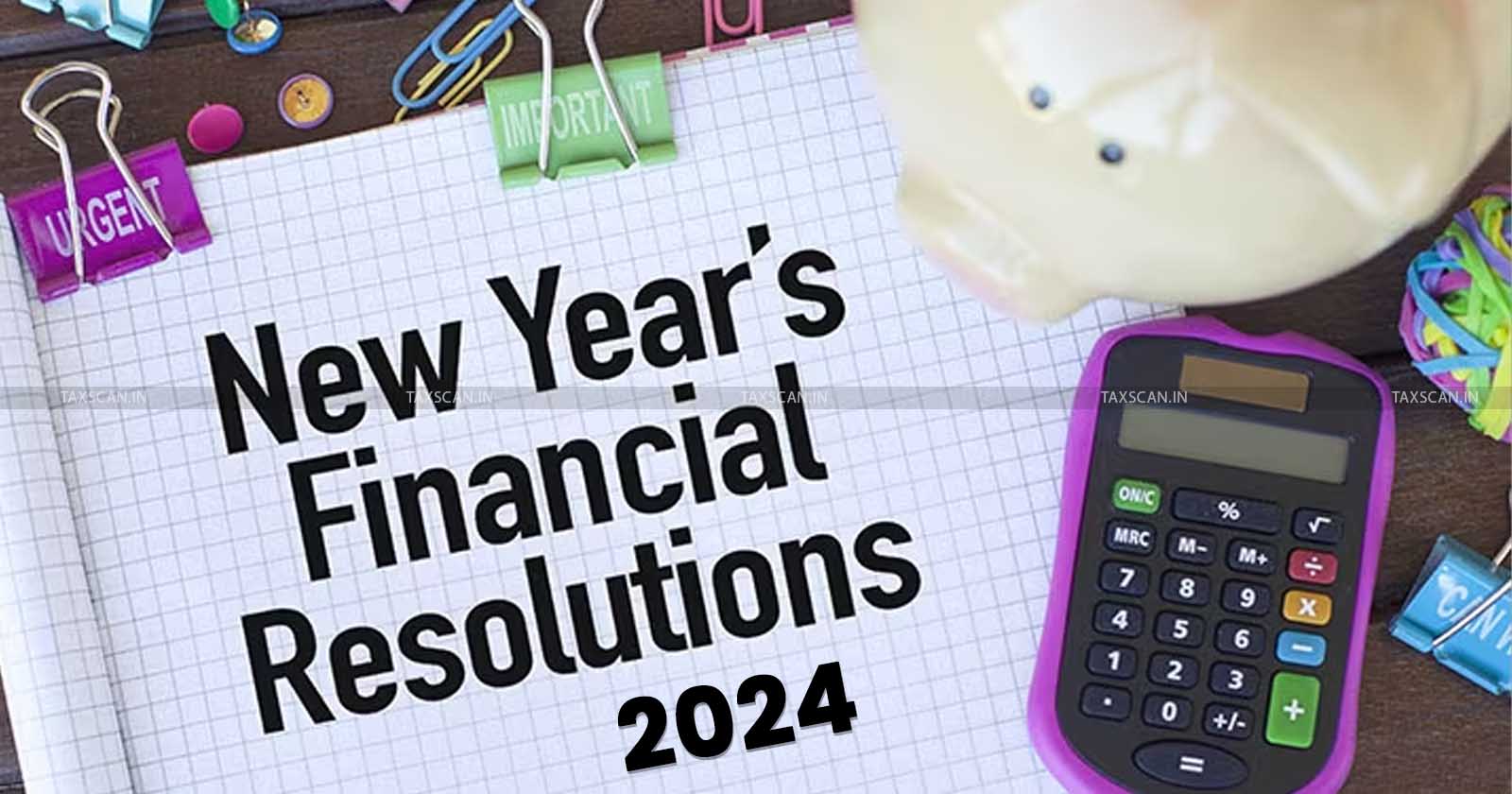Top 10 Financial Resolutions for New Year 2024
A new year is a chance for a fresh start, new opportunities and new perspectives. Make the best out of the upcoming year for long-standing financial security, growth and freedom

Top 10 Financial Resolutions – Top 10 Financial Resolutions for New Year 2024 – 10 Financial Resolutions for New Year – Financial Resolutions for New Year 2024 – TAXSCAN
Top 10 Financial Resolutions – Top 10 Financial Resolutions for New Year 2024 – 10 Financial Resolutions for New Year – Financial Resolutions for New Year 2024 – TAXSCAN
As the New Year 2024 approaches, seize the opportunity to assess your financial standing and pave the way for a secure and prosperous future. Rather than treating financial planning as a yearly ritual, it should be recognized as an ongoing, dynamic process.
Achieving financial stability begins with the foundational step of establishing clear and achievable goals. Whether your objectives involve creating an emergency fund, acquiring a home, or planning for retirement, having well-defined targets provides a roadmap for your financial journey.
Here are ten comprehensive steps to expertly guide you in planning your finances for the upcoming year 2024 and beyond:
1. Define Clear Financial Objectives:
a. Identify short-term and long-term goals, such as building an emergency fund, purchasing a home, or planning for retirement.
b. Prioritize goals based on urgency and importance.
2. Evaluate Current Financial Status:
a. Conduct a thorough analysis of income, expenses, assets, and liabilities.
b. Calculate your net worth.
c. Understand spending patterns.
3. Craft a Detailed Budget:
a. Develop a realistic budget aligned with your financial goals.
b. Categorize expenses (e.g., fixed, variable) and track spending.
c. Allocate a portion of income to savings and investments.
4. Establish an Emergency Fund:
a. Ensure 3 to 6 months' worth of living expenses are in an accessible account.
b. Regularly reassess and adjust based on changes in financial circumstances.
5. Strategize Debt Management:
a. List all outstanding debts, including interest rates.
b. Develop a plan to pay off high-interest debt first.
c. Consider debt consolidation strategies.
6. Review and Optimize Insurance Coverage:
a. Evaluate life, health, home, and auto insurance.
b. Ensure coverage aligns with current needs.
c. Consider increasing coverage if necessary.
7. Diversify Investment Strategy:
a. Diversify investments based on risk tolerance and goals.
b. Rebalance the investment portfolio periodically.
c. Explore tax-saving instruments based on your capacity.
8. Prioritize Retirement Planning:
a. Assess retirement savings goals.
b. Contribute consistently to retirement accounts.
c. Explore and leverage employer-sponsored plans.
9. Strategize Tax Planning:
a. Optimize deductions and tax credits.
b. Consider consulting a tax professional for personalized advice.
10. Plan for Education Expenses:
a. If applicable, plan for education expenses for yourself or dependents.
b. Explore tax-advantaged education loan schemes.
5 Additional Points for Long Term Financial Peace of Mind
Regularly Review and Adjust:
a. Schedule regular financial check-ins to review progress.
b. Adjust the plan based on changes in income, expenses, or goals.
c. Stay informed about economic trends and financial opportunities.
Build and Maintain Credit:
a. Check your credit report regularly.
b. Pay bills on time and manage credit responsibly.
c. Address any issues or discrepancies promptly.
Prioritize Estate Planning:
a. Develop or update your will and other estate planning documents.
b. Consider powers of attorney and healthcare directives.
Embrace Continuous Learning:
a. Stay informed about personal finance - best practices.
b. Attend workshops, read books, and follow reputable financial news sources.
Seek Professional Advice:
a. Consult with financial advisors, accountants, or estate planners as needed.
b. Obtain professional advice for complex financial situations.
In conclusion, effective financial planning demands strategic thinking, discipline, and adaptability. A well-structured financial plan instills confidence, offering a clear pathway to specific goals.
This proactive approach diminishes financial concerns, fosters a sense of security, and enables knowledgeable decision-making. Remember that financial planning is a dynamic process, and flexibility is key.
Regularly revisit and adjust your plan to ensure it remains aligned with your goals and circumstances. Life changes, and your financial plan should adapt accordingly. Embrace these strategic steps to embark on a financially secure and prosperous New Year.
Support our journalism by subscribing to Taxscan premium. Follow us on Telegram for quick updates


